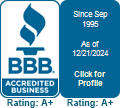I tried to pay online but it was rejected. Why?
Probably because you are trying to pay less than the minimum our clients are willing to take as a payment. Contact our friendly staff to get your payment processed, just call 505-325-5055.
Do you give out free credit reports?
If you want a free credit report you must go to annualcreditreport.com. But we are one of the few places on the planet where a live friendly human will help you get your report, explain it to you and help you correct any errors.
How do I get my credit score?
Go to one of these sites:
Do you fix credit?
No, A credit report is just history – if it is ugly but true it belongs on the report. However, we can teach you how to take charge of your finances and build good credit for your future. Our Money Transformation classes will be listed with San Juan College soon – stay tuned.
What is the difference between a Credit Report and a Credit Score?
A Credit Report is a listing of all your credit transactions. Who you borrowed money from, when and how much the payments are. It also records if the payments have been made on time or not. Your credit report will also give potential lenders your name, address, date of birth and other demographic information. If you filed bankruptcy in the last 10 years that is listed. Additionally if you have accounts listed with a collection agency those will stay on your report for 7 years. Finally, everyone who has pulled your credit report will be listed. This helps you know who has looked at you report so you can determine if anyone is attempting to commit identity theft.
A Credit Score uses all the information listed on the report to provide a number between 350 and 850. The higher the number the better your score.
How is your credit score developed? What counts?
Legally you can only correct inaccurate information. If it’s ugly but accurate, it’s still yours and will be on your credit report.
- How you pay your bills: Most important in your score is how you’ve paid your bills, with emphasis on recent activity. Paying on time is good. Paying them late is bad. Accounts sent to collections are worse. Bankruptcy is the worst.
- Wise Use, meaning, how much money you owe: People with the highest scores use credit sparingly and keep their balances low.
- Length of credit: the longer you’ve had credit — particularly if it’s with the same credit issuers — the more points you get.
- Mix of credit: Statistically, consumers with a richer variety of experience are better credit risks. They know how to handle money.
- Inquiries: How many credit applications you are filling out. But, models account for the best loan rates
What is the average credit score?
| US National | 692 |
| New Mexico | 677 |
| Arizona | 680 |
| Colorado | 695 |
| Utah | 699 |
| Minnesota | 721 – the highest |
| Nevada | 668 – the lowest |
How do I maximize my credit score? Go to our page, Your Credit Score to learn how.
How do I lock my credit report so no one can look at it?
This is a “Credit Freeze.” This helps protect you from Identity Theft. Even if your identity was stolen, the thief could not open any new accounts under you name.




